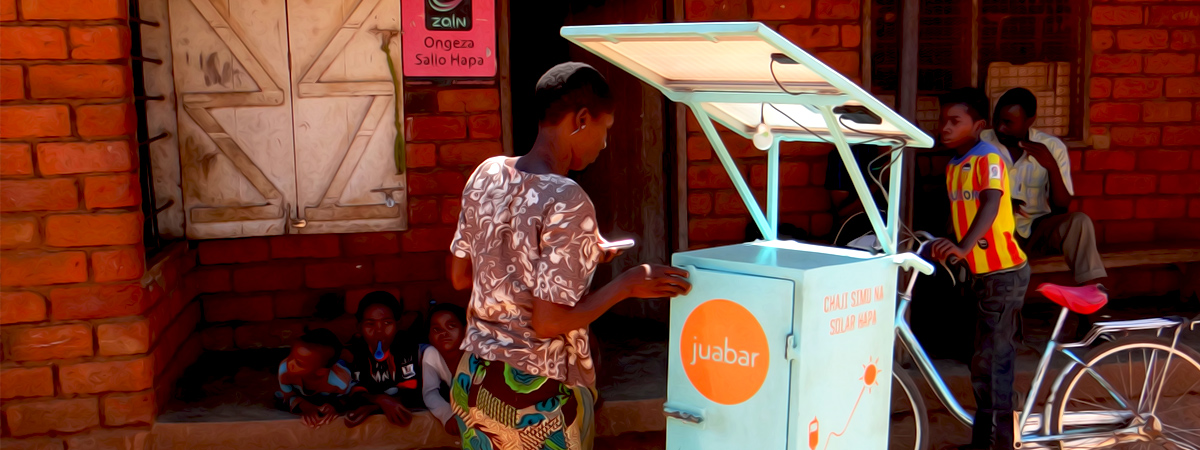This is the last post of a 14-part series on entrepreneurship in Africa and the companies who participated in the inaugural Unreasonable East Africa program.
Think about this the next time you complain that you can’t find a power outlet to charge your phone: 97 percent of Tanzanians either own or have access to a mobile phone, yet only ten percent live on the national power grid. In rural areas, the figure is around two percent.
To help solve this problem, California resident Olivia Nava co-founded Juabar, a company that builds and leases wheeled, solar-powered phone-charging kiosks in Tanzania. Clients lease the Juabar stations for about $50 per month and can wheel them to gathering places to create a sort of pop-up recharging center. They charge roughly 20 cents per charge and can gross more than $100 per month. These operators, called “Juapreneurs,” also take classes on customer service, book keeping, and product training so that they can provide technical support and sell additional hardware like solar lights to supplement their income. Since its founding in July of 2013, Juabar has put 32 kiosks in the field and plans to have at least 50 in operation by the end of this year.
Mobile-phone adoption has turned electricity into a very real need in Africa. Tweet This Quote
Nava settled on this area of focus while researching electricity access in Tanzania as part of her MBA program at the California College of Arts. Upon retrurning to the U.S., she and Sachi DeCou, a colleague in the design-strategy MBA program, put what they had learned in Tanzania with the design-thinking methodologies they were studying in school and hit upon the Juabar concept. The mobile-kiosk solution, Nava says, is an easy way to get electricity to people who still haven’t benefited from the installed solar-power systems that are still relatively rare, especially in rural Tanzania.
“The dominant model is buy solar products from another country, import them, and distribute them to retailers,” she says. “Even though [Juabar] seems simple and straightforward, it’s a way that no one has ever really thought of doing before.”
Mobile-phone adoption has turned electricity into a very real need in Africa. While lights, radios, and the like are nice, mobile phones are how increasing numbers of Africans do their banking (many had never before had bank accounts), advance their educations, participate in the political process, and manage their farms or small businesses. Without the ability to recharge their phones, their lives can grind to a standstill.
“We’re focused on electricity access right now,” Nava says. “But what motivates us is what people can do with that.”



